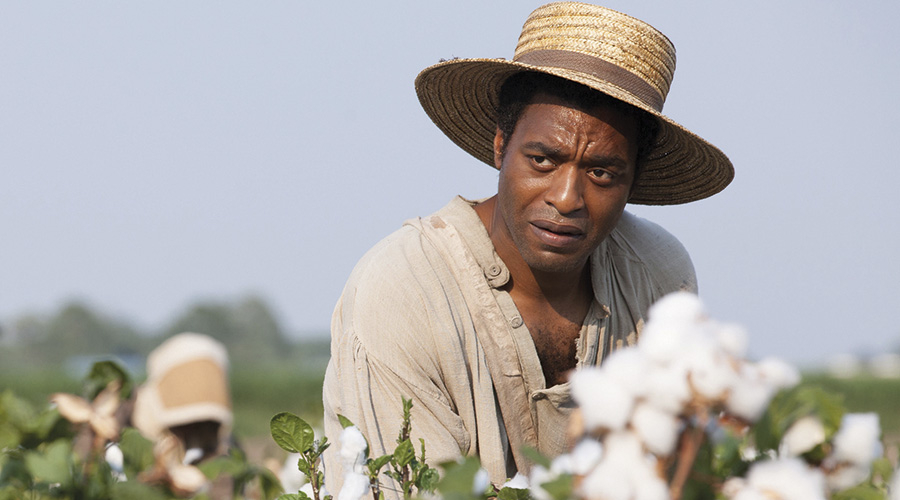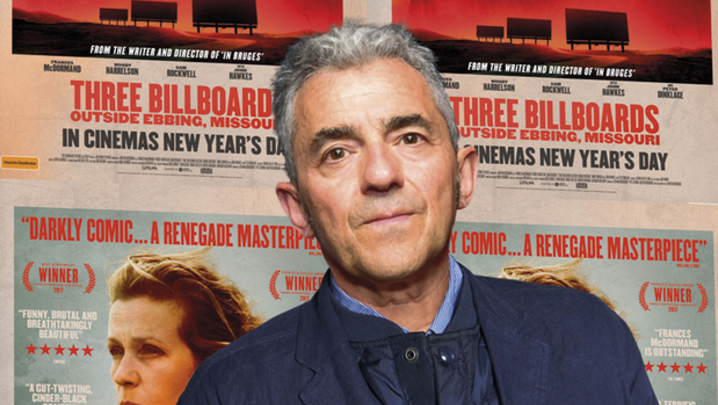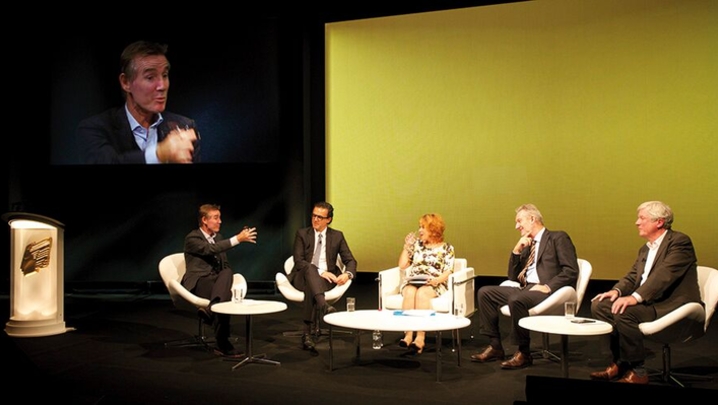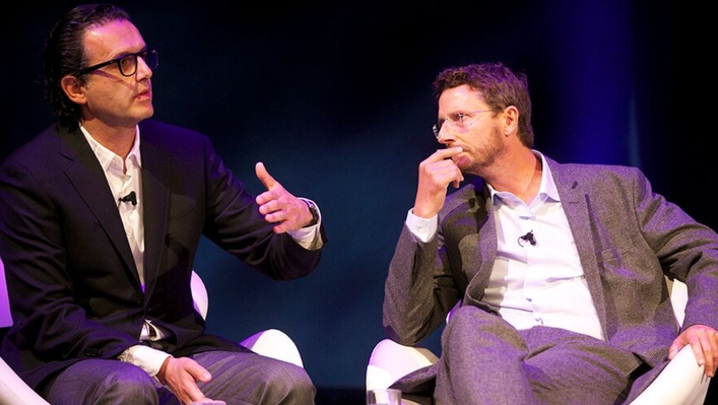Can the new boss of Channel 4’s Oscar-winning movie arm deliver a profit? Stuart Kemp investigates
When Film4 chief David Kosse announced plans to stand down, the UK film industry didn’t, at first, take him seriously. And it wasn’t just because the news broke on April Fool’s Day.
Just a few weeks previously, Channel 4 CEO David Abraham had secured the green light from his board to significantly bolster the film unit’s budget from £15m to £25m for 2016.
Subsequently, Abraham and Kosse had embarked on an industry charm offensive, extolling the virtues of working with more ambition and a fatter wallet. It was a clear endorsement of the more aggressive and commercially minded deal-making that Kosse, the former Universal Pictures International executive, had been hired, in November 2014, to deploy.
No wonder that the industry was surprised when it was announced that Kosse was planning to move on in June. He has been poached to run the international division at US mini-studio STX Entertainment, but will work with Film4 on a consultancy basis until October.
“David has done a phenomenal job and, of course, it would have been lovely to have had him for another year or two,” says Abraham.

Best Documentary (credit: Channel 4)
The Channel 4 CEO moved swiftly to replace Kosse. He wanted to ensure there was no loss of momentum, and hired Cohen Media Group President Daniel Battsek.
The former Miramax Films President will start in July, initially with Battsek and Kosse working together. “Given his experience, seniority and ability, David has achieved what I wanted him to in terms of resetting the business strategy,” says Abraham. “The important thing now is that Daniel has taken the job on the basis that he supports the strategy and he wants to build upon it.”
As Abraham had previously spearheaded an exhaustive [and expensive] eight-month executive search before hiring Kosse, the executive talent hunt still felt fresh, he says. Board-level discussions to bring in another experienced high-flyer were fast-tracked.
“With the new team and the strategy, David and I were looking at expanding the team at the top end, anyway,” Abraham says. “With Daniel, we have someone who, from what I can tell, has been well received in the global industry and here in the UK as well.”
UK-born Battsek, who has spent more than a decade in the US, says he has “retained strong ties with British film-makers”. He regards joining Film4 as “almost like coming full circle”.
He will arrive to a development slate boasting fresh projects from feted film-makers Lenny Abrahamson, Andrea Arnold, Yorgos Lanthimos, Andrew Haigh, Steve McQueen, Clio Barnard and Mike Leigh, among many others.
His links on both sides of the Atlantic, just like Kosse’s, are important to Film4’s future role in what is a global-facing part of Channel 4’s business.
“We’ve made an important contribution to supporting independent British film-makers throughout our existence, going back to 1982."
“Film remains an important part of our remit and our history,” notes Abraham. “We’ve made an important contribution to supporting independent British film-makers throughout our existence, going back to 1982.
“I’ve always had the ambition to find ways to sustainably increase our commitment to film, as long as we could find a path for it to be just that: sustainable.”
It is not going to be easy, however, given film’s high-risk status. “Bluntly, it was not well known in the industry that we were losing 50p in every pound on the activities of the division,” reveals Abraham. “Up until recently, that [loss] was a valid part of the cross-subsidy model of Channel 4, which had to be paid for by the TV division.”
Together, Kosse and Abraham investigated ways for the small but significant investments that Film4 has traditionally made in projects to provide a better upside from any future commercial success.
“I could see a disparity between the amount of work Film4 was putting into developing films, getting them to a point where they could attract other investment and progress to production, versus the returns that were coming back to us,” says Kosse.
“It was frustrating to me that other investors, who’d come in for a bigger share of the budget once some of the heavy lifting was already done, were making more money from our films than we were.”
To this end, Kosse has struck a four-picture deal with FP Films, the production company set up by The Inbetweeners’ creators Damon Beesley and Iain Morris, and the UK’s Entertainment Film Distributors (EFD). The aim is to develop, produce and finance four comedy features over the next two years with Film4 and EFD sharing all rights.
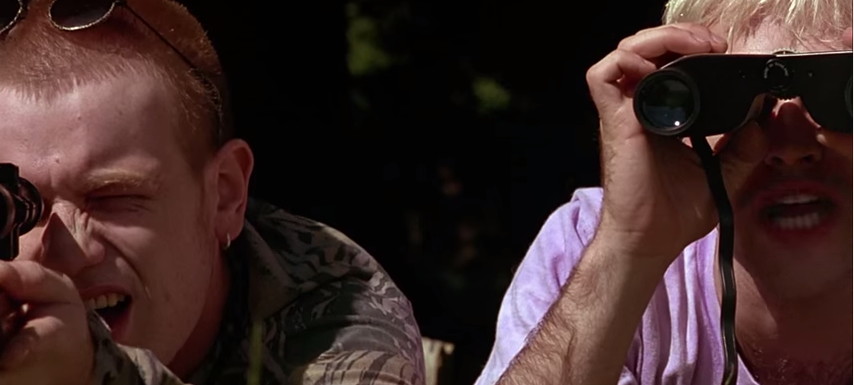
(credit: Channel 4)
The £3.5m, big-screen version of the Beesley and Morris hit TV show is one of the few productions that Channel 4 fully bankrolled – even if, taste-wise, it wasn’t entirely to Film4’s liking. The Inbetweeners movie grossed more than £40m in the UK and spawned a sequel that grossed just shy of another £40m.
Kosse also sealed a 50/50 co-financing deal with Fox Searchlight for the race drama Three Billboards Outside Ebbing, Missouri, by In Bruges writer-director Martin McDonagh.
The agreement means that Film4 will benefit should Fox Searchlight’s worldwide roll-out garner box-office gold. Produced by Graham Broadbent and Peter Czernin at Blueprint Pictures, the film is in production in North Carolina.
Being in business with Film4 is an attractive proposition for UK producers. A British broadcaster deal is still one of the most valued and lucrative parts of any film’s budget package, even if Film4 is only involved at the development stage.
“Film4 remains an important partner on the project after partnering to develop it,” emphasises producer Stephen Cornwell of UK- and US-based The Ink Factory. He worked with Film4 on the development of Ang Lee’s Billy Lynn’s Long Halftime Walk, produced by The Ink Factory.
A British broadcaster deal is still one of the most valued and lucrative parts of any film’s budget package
Film4’s latest movies have a lot to live up to. Three Film4 projects took home Oscars shortly before Kosse’s announcement: Brie Larson picked up Best Actress for Abrahamson’s Room, Asif Kapadia’s Amy was voted Best Documentary Feature, and Alex Garland’s sci-fi drama, Ex Machina, won for Best Visual Effects.
“You can see from the success that we had in this year’s awards season that Film4 has a vital role to play in developing and nurturing film production in the UK,” says Kosse. “But it also enables home-grown talent to compete on the world stage and to make films that reach global audiences.”
Meanwhile, Andrea Arnold’s American Honey will be flying the flag for Film4 – and, more importantly, female film-makers – in competition at the Cannes Film Festival. At the same time, Danny Boyle’s Trainspotting 2 and Paddy Considine’s Journeyman begin filming.
“The number of Oscars that we have won over the past 15 to 20 years versus the BBC/ITV demonstrates that something very special is going on creatively here. That reinforces the overall position of Channel 4 in the cultural industries,” Abraham says. “I am very positive about what is coming next.
“Our new strategy is about saying: ‘Let’s be more ambitious to make it self-sufficient’. And should Film4 be in the happy position of being in profit in the future, I would expect that to be immediately drawn into future budgets for the division.”
When it comes to how serious the business of film is to Channel 4 and the broadcaster’s remit, Film4 isn’t fooling around.

